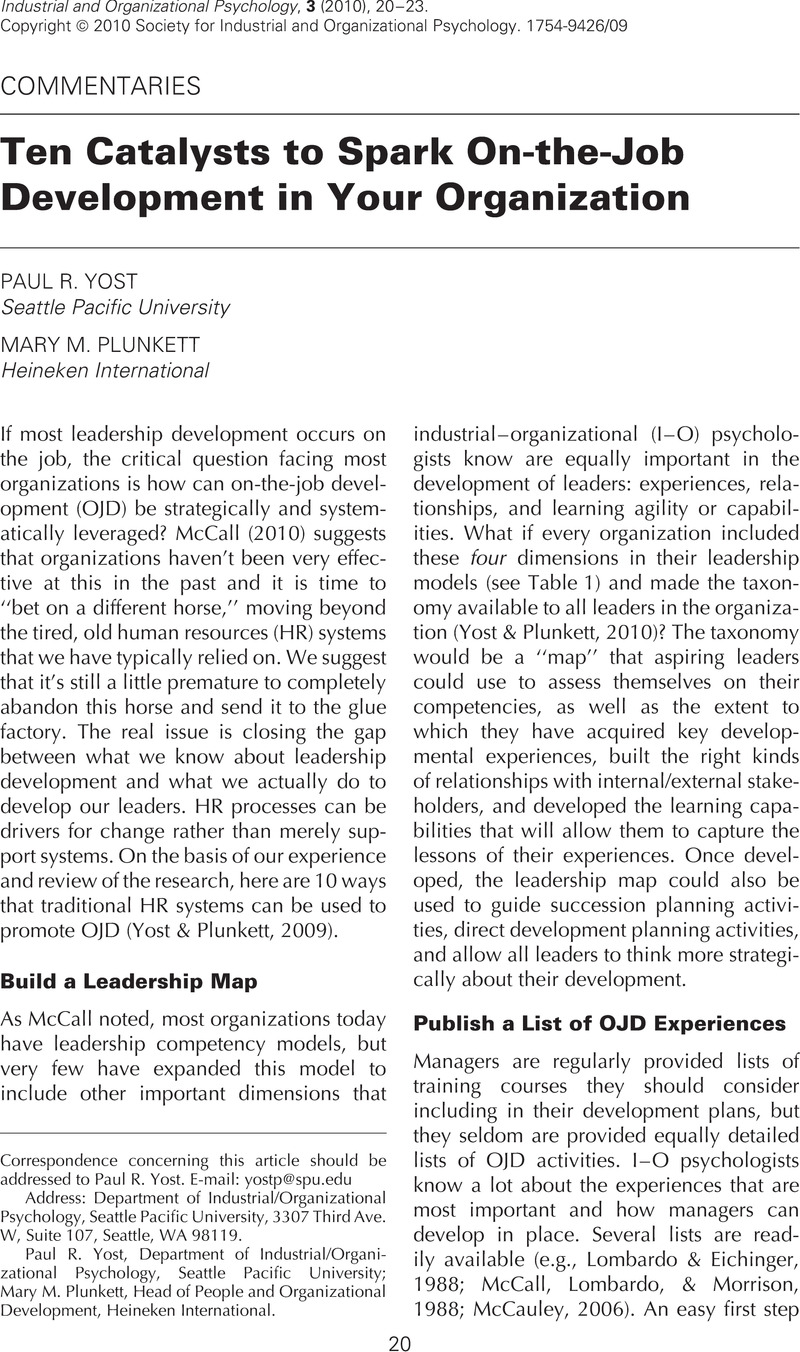Crossref Citations
This article has been cited by the following publications. This list is generated based on data provided by Crossref.
McCall, Morgan W.
2010.
Peeling the Onion: Getting Inside Experience-Based Leadership Development.
Industrial and Organizational Psychology,
Vol. 3,
Issue. 1,
p.
61.



